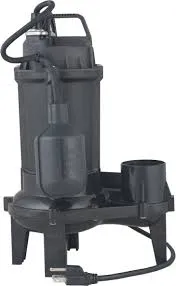Portuguese
- Afrikaans
- Albanian
- Amharic
- Arabic
- Armenian
- Azerbaijani
- Basque
- Belarusian
- Bengali
- Bosnian
- Bulgarian
- Catalan
- Cebuano
- Corsican
- Croatian
- Czech
- Danish
- Dutch
- English
- Esperanto
- Estonian
- Finnish
- French
- Frisian
- Galician
- Georgian
- German
- Greek
- Gujarati
- Haitian Creole
- hausa
- hawaiian
- Hebrew
- Hindi
- Miao
- Hungarian
- Icelandic
- igbo
- Indonesian
- irish
- Italian
- Japanese
- Javanese
- Kannada
- kazakh
- Khmer
- Rwandese
- Korean
- Kurdish
- Kyrgyz
- Lao
- Latin
- Latvian
- Lithuanian
- Luxembourgish
- Macedonian
- Malgashi
- Malay
- Malayalam
- Maltese
- Maori
- Marathi
- Mongolian
- Myanmar
- Nepali
- Norwegian
- Norwegian
- Occitan
- Pashto
- Persian
- Polish
- Portuguese
- Punjabi
- Romanian
- Russian
- Samoan
- Scottish Gaelic
- Serbian
- Sesotho
- Shona
- Sindhi
- Sinhala
- Slovak
- Slovenian
- Somali
- Spanish
- Sundanese
- Swahili
- Swedish
- Tagalog
- Tajik
- Tamil
- Tatar
- Telugu
- Thai
- Turkish
- Turkmen
- Ukrainian
- Urdu
- Uighur
- Uzbek
- Vietnamese
- Welsh
- Bantu
- Yiddish
- Yoruba
- Zulu
Telephone: +86 13120555503
Email: frank@cypump.com
Out . 18, 2024 16:22 Back to list
Efficient Slurry Pumping Solutions with Closed Impeller Design for Optimal Performance
Understanding Slurry Pump Closed Impellers
In the world of industrial fluid handling, slurry pumps play a vital role in transporting mixtures of liquids and solids. These pumps are engineered to handle abrasive and corrosive materials that would typically damage standard pumps. Among the various designs of impellers used in slurry pumps, the closed impeller stands out for its efficiency and effectiveness. This article will explore the structure, advantages, and applications of the closed impeller in slurry pumps.
Structure of Closed Impellers
A closed impeller consists of two parallel discs with blades connecting them. This design creates a sealed chamber that allows for the smooth flow of slurry through the pump. The essential components of a closed impeller include the eye (inlet), vanes (blades), and the shroud (the outer casing of the impeller). The eye draws the slurry into the pump, while the vanes help propel it outward and increase the pressure as it exits the impeller. The shroud ensures that the slurry is contained within the impeller, which is crucial for maintaining efficiency and preventing leaks.
Closed impellers can be found in various diameters and designs, tailored to specific applications. Common materials used in their construction include high-chrome stainless steel and elastomers, chosen based on the nature of the slurry being handled. The choice of material is critical in mitigating corrosion and abrasion, thereby extending the life of the impeller.
Advantages of Closed Impellers
One of the primary advantages of closed impellers is their hydraulic efficiency. Because of their design, closed impellers can generate higher pressure heads compared to their open counterparts. This increased efficiency means that less energy is required to achieve the desired flow rate, resulting in lower operational costs. Reduced energy consumption not only benefits the bottom line but also contributes to environmental sustainability by lowering the carbon footprint associated with energy use.
Another significant advantage is the ability to handle a wide range of slurry compositions. Closed impellers are designed to manage both coarse and fine particles, making them suitable for various industries, including mining, construction, and wastewater treatment. Their robust design minimizes the risk of clogging, which is a common issue in open impeller configurations.
slurry pump closed impeller

Furthermore, closed impellers offer improved wear resistance. The enclosed design protects the vanes from direct contact with solid particles, reducing wear and prolonging the service life of the pump. This feature is especially beneficial in applications where the slurry contains abrasive materials, such as sand or gravel. By reducing maintenance frequency and replacement costs, companies can increase their operational efficiency and reduce downtime.
Applications of Closed Impellers
The versatility of closed impellers makes them suitable for a wide array of applications. In the mining industry, they are commonly used to transport slurry containing minerals and ores. The ability to handle challenging materials without compromising performance makes closed impellers an industry standard.
In construction, closed impellers are often employed in dewatering applications, where the removal of water mixed with soil or sediment is necessary. Their effective handling of various particle sizes ensures that construction sites remain operational, even in adverse weather conditions.
Wastewater treatment facilities also benefit from closed impellers, as these pumps can handle the mixed sludge produced during the treatment process. The ability to transport thick, viscous slurries without clogging makes closed impellers an essential component of modern wastewater management systems.
Conclusion
Closed impellers in slurry pumps provide a winning combination of efficiency, durability, and versatility. Their innovative design allows for the effective handling of a variety of slurries in challenging environments, making them a critical element in many industrial processes. By understanding the structure, advantages, and applications of closed impellers, businesses can make informed decisions when selecting the appropriate slurry pump for their needs. The longevity and reliability of closed impellers not only enhance operational efficiency but also contribute to cost savings and sustainability efforts in fluid transportation.
-
ISG Series Pipeline Pump - Chi Yuan Pumps | Energy Efficiency&Compact Design
NewsAug.03,2025
-
ISG Series Vertical Pipeline Pump - Chi Yuan Pumps Co., LTD.|High Efficiency, Low Noise, Durable
NewsAug.02,2025
-
ISG Series Vertical Pipeline Pump - Chi Yuan Pumps | High Efficiency, Low Noise
NewsAug.02,2025
-
ISG Series Vertical Pipeline Pump- Chi Yuan Pumps Co., LTD.|High Efficiency&Compact Design
NewsAug.02,2025
-
Heavy-Duty Mining Sludge Pumps - Wear-Resistant Slurry Handling
NewsAug.02,2025
-
Horizontal Split Case Pump with GPT-4 Turbo | High Efficiency
NewsAug.01,2025










